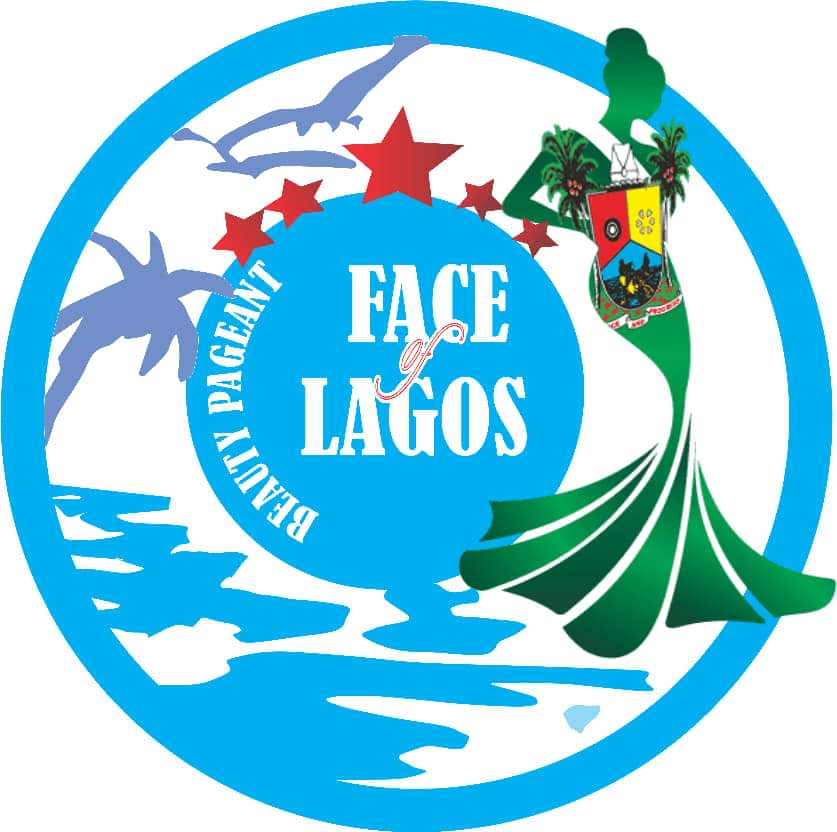 The move by the House of Representatives to amend the Nigerian Press Council (NPC) Act Cap N128, Laws of the Federation of Nigeria 1992, has been generating heated reactions from stakeholders in the media industry.
The move by the House of Representatives to amend the Nigerian Press Council (NPC) Act Cap N128, Laws of the Federation of Nigeria 1992, has been generating heated reactions from stakeholders in the media industry.
The attempt is part of government efforts to curb the spread of fake news, misinformation or infodemic in the public domain. The NPC Amendment Bill is sponsored by Rep Olusegun Odebunmi.
Odebunmi doubles as the chairman of the House of Representatives Committee on Information, National Orientation, Ethics and Values, which handled the recent public hearing on the contentious bill.
It’s worthy of note that, down the ages and across cultures, information has occupied a very crucial space in the life of any society. In today’s world coupled with the speed in technological advancements is characterised with easy access to the collecting, refining and distribution of information.
This has left media houses especially the large ones with the burden of competing with alternative media, as media producers abuse the privilege in liberal democracies that is granted citizens as regards human rights and freedom, as the rate of disseminating false information continues to grow.
In fact, the act of manipulating information has existed long before the advent of social media, an active feature of history long, even before the coming of modern journalism through established standards which define news as a genre based on particular rules of integrity.
Facts affirming the above claim dates back to an early incident recorded to have occurred in ancient Rome, when Antony met Cleopatra and his political enemy Octavian launched a smear campaign against him with “short, sharp slogans written upon coins in the style of archaic Tweets.” The perpetrator became the first Roman Emperor and “fake news had allowed Octavian to hack the republican system once and for all”.
The term ‘news’, in its ideal form stands for verifiable information in the public interest, this is why any information that does not meet these aforementioned standards does not deserve the label of news. What this implies is that whenever there is a mention of the term, ‘fake news’, it would simply pass as an oxymoron, that where two words of opposite meaning are used together, an attempt aimed at simply undermining the credibility of information which does indeed meet the threshold of verifiability and public interest – that is real news.
Fake news is currently an issue of global interest right now; this is so because globally discussions about fake news and its impact on global affairs are being held. This century sadly has seen the use of information as a weapon in rather unprecedented scale.
The exploitation and falsification of contents have simply become rather easy with the presence of Powerful new technology, this has also given easy rise to the use of social networks in intensifying the rate falsehoods in rather very dramatic fashion especially as peddled by States, politicians, deceitful corporate entities, and individuals who go about sharing uncritical publics stories, these and other forms of misinformation are perpetrated with the intent seeking or gaining platforms to pursue financial gains in the advertising section.
There is a high spread of the fake news phenomenon on the internet; this is so because of the internet’s ever connected nature and a major function of the masses’ preference for speed over accuracy. Thus, since those who provide content on the internet are a Zero-sum, winner-takes-all battle for attention and for of course the revenue that comes with it, they do not mind doing any and everything to boost traffic.
Distinct from print publications that allows for enough time before reporting a breaking story the next day, publications that are made online which are majorly reports on the franticness of the present world. Due to the nature of modus operandi of the internet, one who is on that space might as well go fast or go home.
Hence, so many journalists are left in an unreasonable competition for attention, where they are forced to publish information first and then verify the authenticity of their contents later, this hunts today’s world badly.
Nonetheless, this is also a Nigerian problem, as there are also a bulk of new sites and blogs that publish contents without properly authenticating their sources. Fake news stories are usually thrilling in nature and by this factor, are very likely to spread quickly; since these blogs or platforms by their nature contain a high level of followers, making the news possess an existing number of massive reader base that have their notification on, looking up to them for second to second information, and since these have special flavors added to them to make them captivating, such stories will most likely be believed by those who them, in turn, these people will share the story on social media as today it is about a thing of pride to be the first to have information about a story, sadly though, this is how fake news goes on and on, more painful is the fact that even after the story has been debunked, Sometimes, the fake news still prevails.
Notwithstanding, with the emergence of what calls the ‘participatory web’ user generated content has gradually become an important part of the digital culture. The resultant effect brought major changes to the news media industry. Particularly, this change was seen in the ways in which news was reported and shared across populations were expanded through media platforms that are connected, this has created positive influence on people especially on engaging the young people with news and information on current affairs.
At the same time, it is important to mention here that the monetization and rapid circulation of ‘news’ through the use of digital platforms especially the social media is responsible for such widespread and effective forms of media manipulation. These digital platforms tend to democratize the creation and circulation of news, however, what they fail to bring into consideration is that, in all these doings, questions abound, questions around what news is, how it gets made, shared and read in online contexts are also raised.
Disturbed by the menace of fake news and hate speech, federal is deploying it’s arsenal to amend the NPC bill. At the public hearing which was held on June 17, the Nigerian Press Organisation (NPO), an umbrella body comprising the Newspapers Proprietors Association of Nigeria (NPAN), Nigerian Guild of Editors (NGE) and the Nigerian Union of Journalists (NUJ) opposed the bill and asked the lawmakers to drop it, saying a suit challenging the bill was pending at the Supreme Court.
In the same vein, media rights groups and critical stakeholders in the media industry present at the hearing kicked against any move to infringe on press freedom through the proposed amendment of the NPC Act.
In its presentation, the International Press Centre (IPC) alongside Media Rights Agenda (MRA), Centre for Media Law And Advocacy (CMLA) and the Premium Times Centre For Investigation Journalism (PTCIJ) kicked against moves to infringe on press freedom and media independence in the country.
However, Odebunmi insisted that the committee would proceed with the amendment, describing the bill as a government’s baby. He said the bill was not meant to gag press freedom but to remove bottlenecks retarding the optimum performance of the NPC, as well as sanitise media practice in the country.
He said the NPC amendment bill was initiated with an independent mind to transform and make the Council move with the current realities in the media industry.
According to him, the proposal for the establishment of a ‘press code’ as proposed in the bill was to protect and guide the Council to checkmate and reduce quackery, fake news and tackle promoters of hate speech. Notwithstanding the foregoing assurance given by the sponsor of the bill, there are controversial clauses in the bill that are still of concerns to stakeholders in the media industry.
One contentious area is that which seeks to give more powers to the Minister of Information to control the conduct of print media houses and media practitioners. Section 3 (c) said: “with the approval of the minister in charge of information, establish and disseminate a national Press Code and standards to guide conduct of print media, related media and media practitioners.
“(d) approve penalties and fines against violation of the Press Code by print media houses and media practitioners, including revocation of license. “(e) receive, process and consider applications for the establishment, ownership and operation of print media and other related media houses;
“(f) with the approval of the minister, grant print media and other related licenses to any application considered worthy of such;
“(g) monitor activities of the press, media and other related media houses to ensure compliance with the National Press Code for professional and ethical conduct, including the Nigerian Union of Journalists.
There are concerns that the above clauses in the amendment would give the Minister of Information undue influence to regulate the media houses and media practitioners in the country, thus jeopardizing free press and independent journalism practice in the country.
For instance, Section 3 (d) said that with the approval of the minister, the council can penalize media houses including revocation of licenses.
Other contentious aspects of the amendments are clauses which stipulate various punitive measures against media houses and journalists that violate the National Press Code to be put in place by the council with the approval of the Minister of Information.
Section 3 of the amendment said: “When an offence under this section has been committed by an individual or a body corporate, such a person(s) or body corporate shall be deemed guilty of an offence and liable to be prosecuted against and be punished accordingly. Where any person or body corporate has been convicted of this offence:
“(i) such person or body shall be liable to a fine of five million naira only or three years imprisonment to the person or the promoter (in case of body corporate);
“(ii) to an additional fine of twenty thousand naira for each day during which the offence continues
Section 17(3) said where the medium of information or the journalist so sanctioned does not comply with the council’s decision, the medium or journalist is guilty of an offence and is liable on conviction:
“(a) in case of a body corporate to a fine of one million naira only and
“(b) in case of a journalist to fine of two hundred and fifty thousand naira only and the council shall order the suspension of the journalist from practice for a period not exceeding six months or more.
“(4) where there is a persistent refusal to comply with the directives of the council, the medium or journalist so sanctioned in accordance with subsection (1) of this section, commits an offence and is liable on conviction:
“(a) in case of a body corporate to a fine of two million naira only;
“(b) in case of a journalist to a fine of two hundred and fifty thousand naira only;
“(c) in an extreme case, the council shall order the striking out the name of the journalist from the register.”
There are concerns over the aforementioned clauses in the amendment which seeks to criminalize journalists and mete out harsh punitive measures against erring media houses and journalists.
The implication is that many journalists and media houses would lose their independence and operate at the whims of government for fear of being penalized.
Beside the heavy fines stipulated above, the council could also stop erring journalists from practice and also withdraw licences of media houses.
Another contentious aspects is that which seeks to criminalize the operations of media outfits that are not registered with the council.
Section 33 (1) of the amendment said: “Any person (s) who, without documentation with the council owns, publishes or prints a newspaper, magazine or journal, commits an offence and is liable on conviction to a fine of five million naira or a term of three years imprisonment or both and to an additional fine of twenty thousand naira for every day the offence continues.”
The above clause implies that the council would wield an overwhelming influence in deciding which medium to be registered to operate and which to be denied registration. Thus, muzzling of the press is imminent, should this bill becomes law.
Beside the above, Subsection 2 of 33 also criminalizes vendors that circulate any newspaper, magazine or journal that is not registered with the council. They are liable to pay fine of N250,000 upon conviction and term of one year imprisonment or both.
Another contentious section is that which seeks to criminalize fake news purveyors.
Section 33 (3) said: “Any person who carried news established to be fake news thereafter, commits an offence and is liable on conviction to a fine of five million naira or two years imprisonment or both and compensation of two million payable to the person (s), group(s) corporate body (s), government or any of its agencies who the news was carried against
(4) Any print media houses whose medium was used to carry such news as specified in subsection 3 of this section is liable on conviction to a fine of 10 million naira or closure of such medium for one year or both and a compensation of twenty million naira payable to the person (s), group(s) corporate body (s), government or any of its agencies who the news was carried against.
There are equally concerns over the following sections as there is no clear definition on what constitutes fake news and who determines what fake news is.
It means that the government and powers that be could hide on the guise of fake news to clamp down on print media houses and journalists that carry news which they consider or adjudged to be “fake news.”
Besides, the heavy fines of N10 million and compensation of N20 million to be slammed on erring media houses as stipulated in the bill are believed to be moves to put media houses under pressure from holding the powers that be accountable as enshrined in the constitution of the country.
Was
It is worthy of note that Section 22 of the 1999 Constitution of the Federal Republic of Nigeria (As amended) states that the press, radio, television and other agencies of the mass media shall at all times be free to uphold the fundamental objectives contained in this chapter and uphold the responsibility and accountability of the government to the people.
For the press to be able to hold the government accountable as watchdog of the society, it must be free and independent to operate without encumbrances from the powers that be.
To this end, there are general concerns that the greater part of the clauses inserted in the NPC amendment bill if passed into law would infringe on free and independent journalism practice in the country as pointed out by media rights groups and other stakeholders in the media industry during the public hearing.

